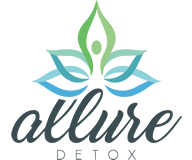The history of slang terminology used to describe a variety of drugs is rather interesting to unpack. Since drugs were first abused in the United States centuries ago, people have been coming up with unique terms and phrases to discreet their drug use. One particular phrase that has been around for decades is ‘Love Boat.’
Table of Contents
What is ‘Love Boat’?
This slang term can be traced back to the 1960s and has described various illicit and addictive substances over the years. ‘Love Boat’ also goes by several different names, including ‘Purple Rain,’ ‘Water,’ and ‘Fry,’ and has repeatedly made headlines because it causes its user to act. But what exactly is this drug, and why has it been popping up so inconsistently over the years? This drug can be a combination of three specific things:
- A tobacco cigarette or marijuana cigarette dipped in liquid PCP.
- Marijuana soaked in embalming fluid (formaldehyde).
- A tobacco cigarette or marijuana cigarette soaked in a combination of PCP and formaldehyde.
More About Drug Known as ‘Love Boat’
The act of dipping tobacco in embalming fluid dates back to the early 1960s, and while the use of PCP has been on a sharp decline in most regions of the U.S., some areas — like Syracuse, New York — are still battling a significant PCP problem. There can easily be confusion surrounding ‘Love Boat’ and other similar drugs, seeing as ’embalming fluid’ can also be used as a slang term for PCP. So what exactly is PCP, and why is it linked to such erratic and violent behavior?
This hallucinogenic drug phencyclidine or phenyl cyclohexyl piperidine is known to cause intense visual and auditory hallucinations and delusions while causing a range of other serious side effects, including rapid heart rate and a sharp increase in body temperature. PCP is a hazardous and highly addictive drug. If you or someone you know has been abusing PCP or the drug called ‘Love Boat,’ reaching out for professional help is extremely important.

Symptoms of PCP Addiction
PCP is a hallucinogenic drug, meaning it alters one’s perception of reality and causes delusions and auditory or visual hallucinations. When people take PCP, they essentially move into a different reality, which can be extremely disturbing for observing their behavioral changes. If you believe someone you know has been abusing PCP, there are several signs and symptoms to keep an eye out for. The most common signs of PCP abuse are erratic behavior, mood swings, and compromised cognitive function (like slurred speech and a lack of coordination). Other potential warning signs include:
- Being defensive when loved ones address changes to behavior or moods.
- Spending less time with family and friends and more time socially isolating.
- Spending time with a different group of people.
- Neglecting personal responsibilities and obligations.
- Not paying attention to personal hygiene.
- Memory loss.
- Sharing strange thoughts and ideas that don’t seem to align with reality.
- Having a difficult time paying attention/getting distracted easily.
Allure Detox and Hallucinogen Recovery
At Allure Detox, we specialize in treating the symptoms associated with hallucinogen withdrawal. Contrary to popular belief, people who abuse hallucinogens do experience withdrawal symptoms, though these symptoms are predominantly psychological. We have psychiatric professionals on staff who are fully equipped to deal with anxiety, depression, and insomnia symptoms.
Start Sober Journey at Allure Detox
While the physical symptoms of PCP withdrawal are not as severe as the psychological symptoms, physical discomfort is widespread. Fortunately, it can easily be treated with a combination of over-the-counter pain relievers and non-narcotic sleep aids in most cases. To learn more about the process of PCP withdrawal or to learn more about our recovery program.
FAQ
What is the Love Boat drug?

